Add an Awesome Headline
Plus, some additional information make this section look awesome.
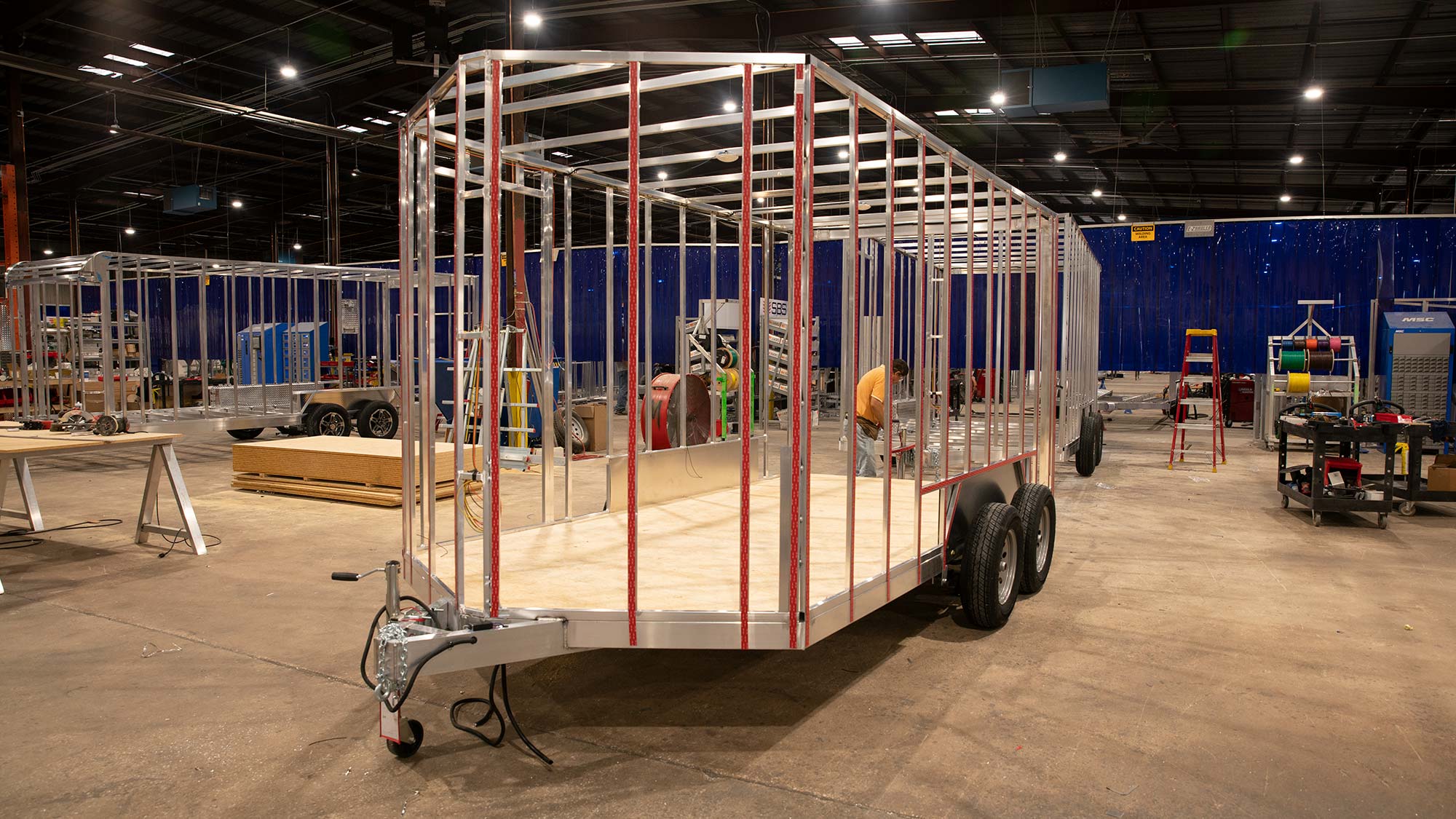
Your truck has a quoted towing capacity, and depending on what you drive, that can be 8,000 pounds or more. It sounds huge, right? But remember - that’s the total weight, including the trailer itself, and the cargo it carries, that your truck can haul. Naturally, then, it’s really important to make the trailer as light as possible. For a higher payload, you need a lighter trailer - an aluminum trailer!
Trailer weight is one of the primary reasons for choosing an aluminum trailer over one fabricated from steel. It’s not the only reason, though. Here’s a comparison of the two trailer materials.
Understand the Material Properties
Aluminum alloy is around one-third the density of steel and two-thirds the strength. In simple terms, that means that aluminum is significantly lighter than steel, but stronger per pound.
In addition, unlike steel, aluminum doesn’t rust. Technically, aluminum develops an oxide layer on the surface that prevents further corrosion. Usefully, if that layer gets scratched it just reforms as long as oxygen is available. This feature of aluminum makes it a long-lasting, weather-resistant material.
Steel is available in a corrosion-resistant form – stainless steel, which is plenty strong – but it’s a little denser, more expensive, and a lot harder to cut and form.
Material Properties Impact Trailer Performance
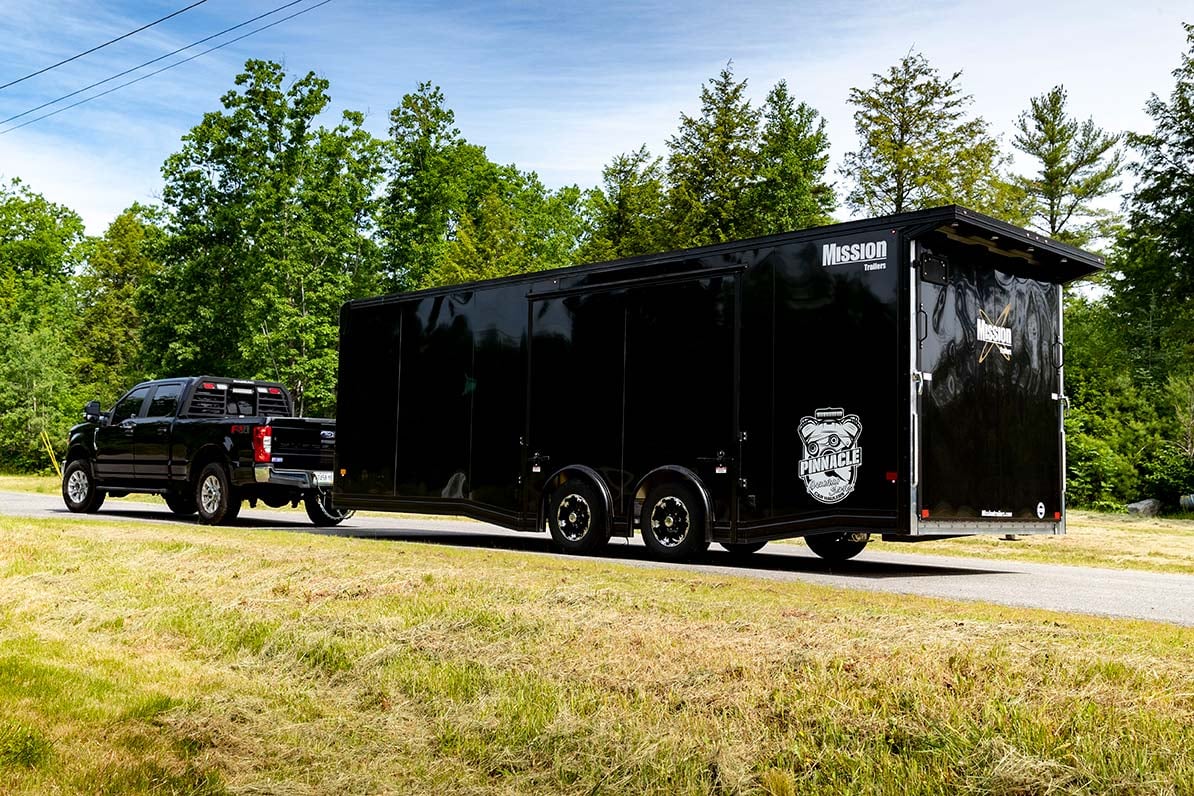

The primary purpose of a trailer is to move stuff – materials, sports gear, tools, a horse, your ATV or motorcycle. The trailer material has a big influence on its ability to move that stuff!
A trailer made from steel is going to be a lot heavier than one the equivalent size made from aluminum, because the specific strength of aluminum is higher.
Towing capacity is about the Gross Trailer Weight (GTW) on the hitch. Gross means the weight of the trailer plus what you put inside, so every extra pound of trailer weight is one less pound you can haul.
If decking out your trailer with extra features (like cabinets, a generator, or upgraded decking!) is important to you, think of it like this: with a lightweight trailer you can add more features before you start worrying about losing payload capacity.
Other TRAILER WEIGHT CONSIDERATIONS
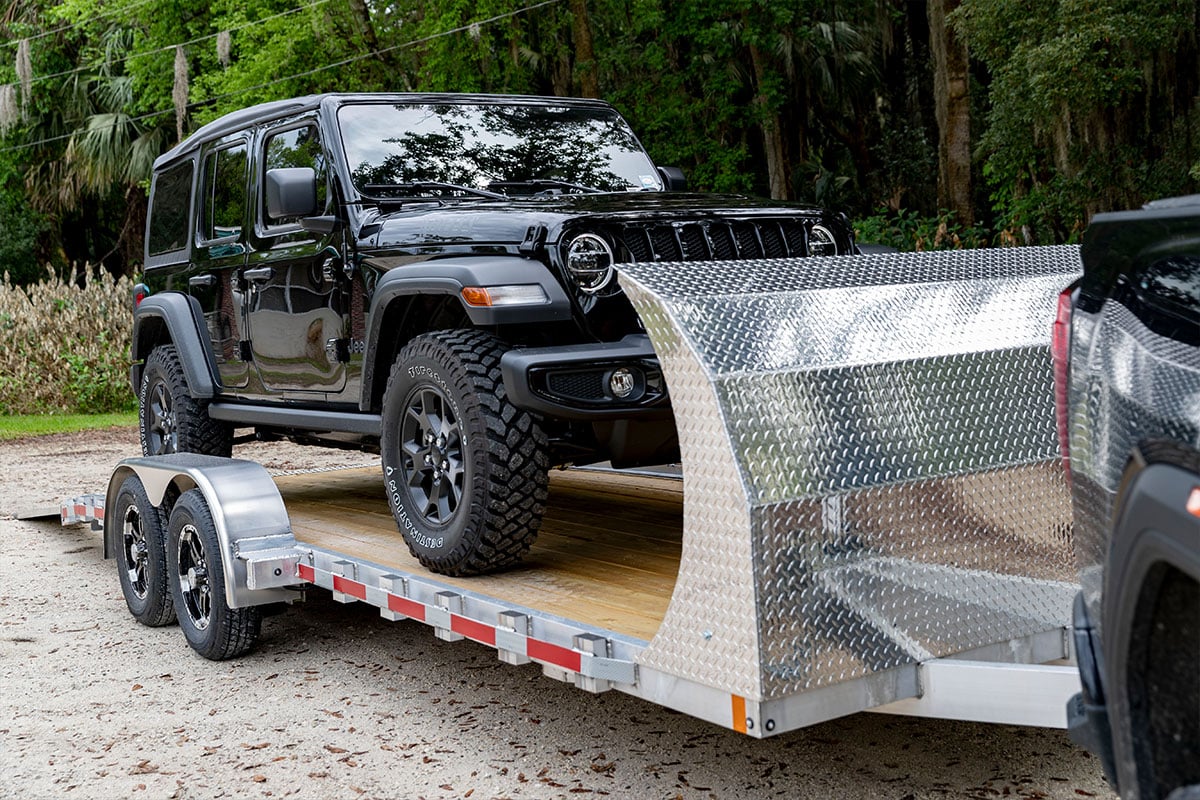
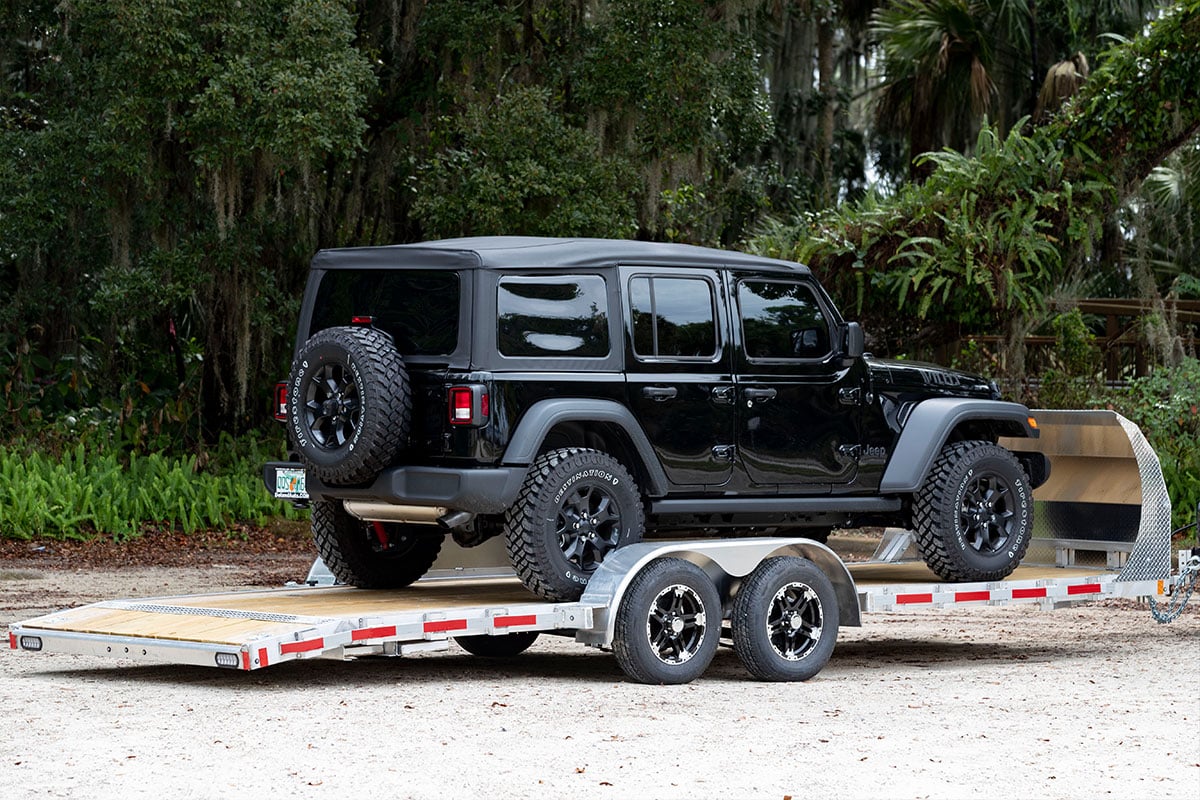
Fuel consumption: the higher the gross trailer weight, the more gas you'll burn pulling it. But if you're going to be paying for that extra gas anyway, wouldn't you rather use it to haul more stuff, further, before your next stop to fuel up?
Towing uphill: with a heavier trailer, moving uphill is slower and less efficient. You might find yourself stuck in the way of other drivers, or relegated to the "slow traffic keep right" lane. For a more energetic uphill tow, an aluminum trailer is ideal.
Safety: more weight takes more effort to brake, and it risks becoming unstable going downhill, especially if you are towing in the snow. With an aluminum trailer with braked axles, you are prepared for a smooth, steady tow every time.
An Aluminum Trailer Will Last Longer
Steel starts out as iron ore, and it’s in a real hurry to get back to that state. Treatments like galvanizing and painting can slow down the process, but they won’t stop it. Any and every scratch is a place where rust will start, and if you use your trailer at all - which is the whole point of having a trailer - scratches are inevitable.
Of course, stainless steel is an option, if you don’t mind the added weight penalty. It’s also not so easy to form, meaning there’s also a cost penalty. The bottom line is, for a long lasting trailer, there’s no practical alternative to aluminum.
Aluminum Looks Better

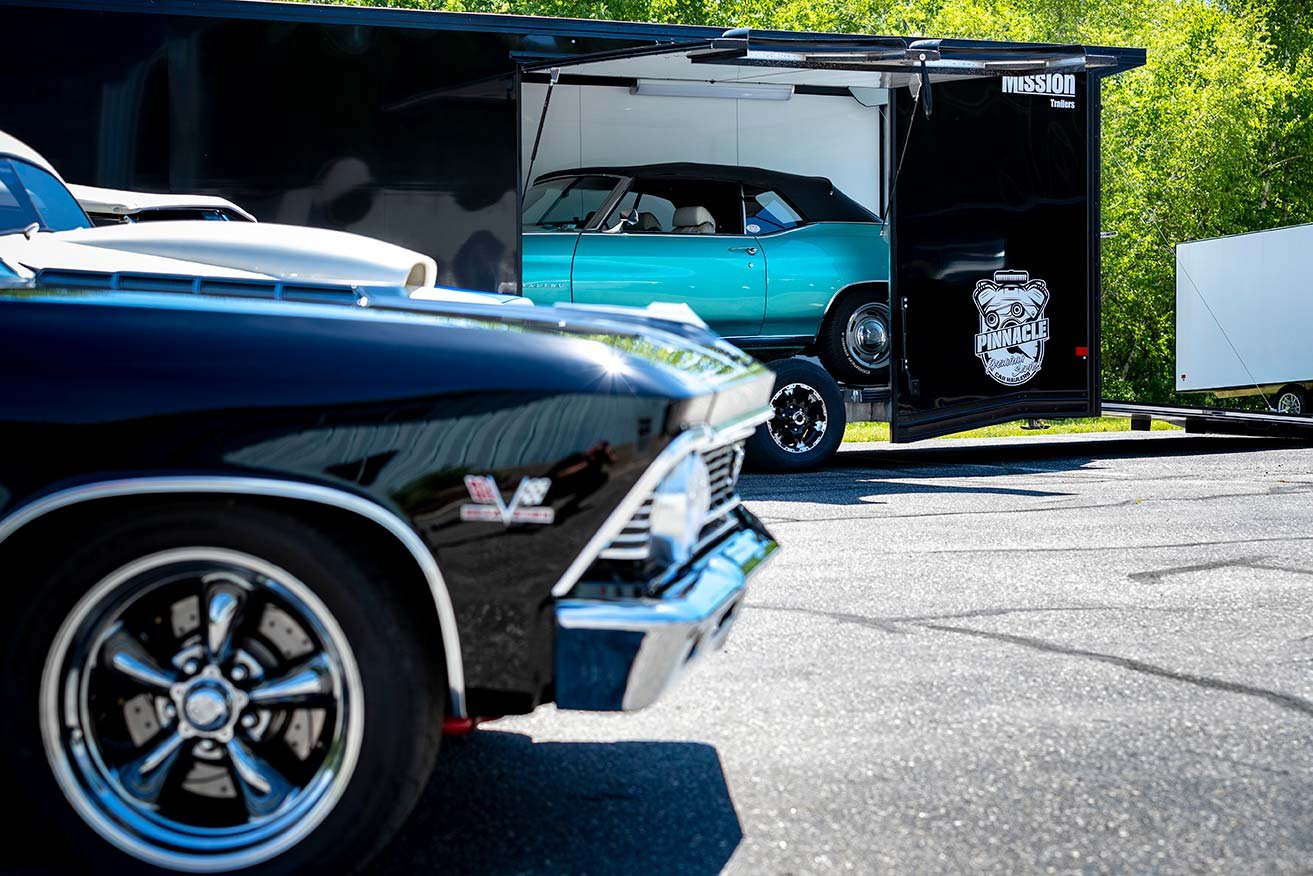
Appearances matter! When you’re unloading at a car show, trailhead or customer site, you want your trailer to leave a good impression. If it’s made from steel it will quickly go from shiny and new to making a shabby-looking first impression. Aluminum, because it doesn’t rust, stays looking better longer. It will look like a high quality trailer - because it is.
Choose an Aluminum Trailer
If you’re not concerned about sacrificing payload for trailer weight, steel might serve you well. If you’re not worried about gas mileage, appearance or additional features that increase the utility of your trailer, go with steel. But if these factors matter to you, you should choose an aluminum trailer! It will be longer lasting, it will look better, it will have a higher payload - and it may even lower your gas bills.
So if you're still wondering: is an aluminum trailer better than steel? The answer is a resounding yes!
Sources
Aluminum vs. Stainless Steel - ShieldCo
Steel vs. Aluminum - Gabrian International










